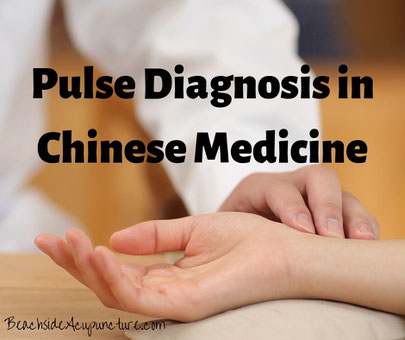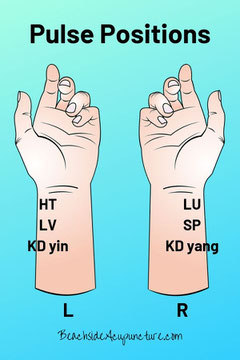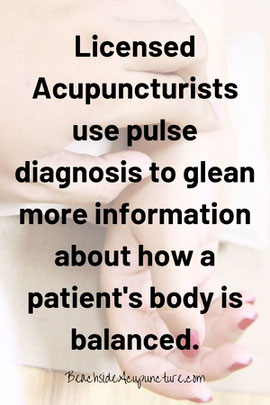
When someone arrives as a new patient at our clinic, we first spend a good amount of time discussing his or her health history, which is usually expected (though our thoroughness may not be). What usually surprises people is the tongue and pulse diagnoses, the former more so just because it involves sticking out the tongue! We use both of these methods to confirm what we'd already discussed in the intake and each can give us a wealth of information about how that patient's body is balanced.
Most people relate to how the pulse is palpated in Western medicine: two fingers on the radial or carotid artery and counting the beats felt to estimate heart rate. While Licensed Acupuncturists also note the speed of the beats, they're taking much more into consideration as well, such as the pulse's strength and depth - basically how much pressure needs to be applied before it is felt - and its position and quality.
Traditional Chinese Medicine (TCM) views the organ systems from a unique perspective, and there are many ways to diagnose organ imbalances, i.e. by analyzing emotions and food cravings. A Licensed Acupuncturist uses three fingers to check a person's pulse on each wrist because each pulse position corresponds to an organ system, providing more feedback to which are out of harmony:

Each pulse position - called cun, guan, and chi in Chinese, with the chi relating to yin and yang - may have a different depth and quality, and it's the concept of quality that may be the most difficult to grasp. Try feeling your own pulse by placing your index finger just below the crease of your wrist and your middle and ring fingers in line behind it. Apply a light pressure with these three fingers and describe how your radial artery feels. Is it...
- ...wiry, like the string of a violin is vibrating against your fingertips?
- ...rolling, like your fingers are grazing a line of pearls trapped in a small dish?
- ...surging, like the pulse builds up and crashes in waves?
There are many more descriptive terms for the pulse - the total amount varies based on which scholar you ask - but our goal isn't to teach you all of them or even what each one means. Instead, we simply wanted to explain what we're doing when we check your pulse and open your eyes to how amazing your body is to give us this information. Of course, pulse diagnosis isn't perfect. Extraneous factors like how long ago you ate can influence it, and it's been said that if a person were to have eight masters check his or her pulse, each one may read it differently. While some practitioners base their treatments on the pulse alone, we use it to confirm the diagnoses we made from our questions to mitigate some of its subjective nature. In our eyes it's a very useful and interesting tool, yet another fascinating way in which the human body is genius in its design.


Kathleen Ellerie is a Licensed Acupuncturist and the owner of Beachside Community Acupuncture. She loves providing affordable acupuncture to the residents of Addison, Dallas, and Farmers Branch, Texas, and educating the general public on how acupuncture and Traditional Chinese Medicine can treat everything from pain to infertility to stress and beyond. Click "Book Now" at the top of this page to book an appointment or feel free to contact her at (214) 417-2260.








